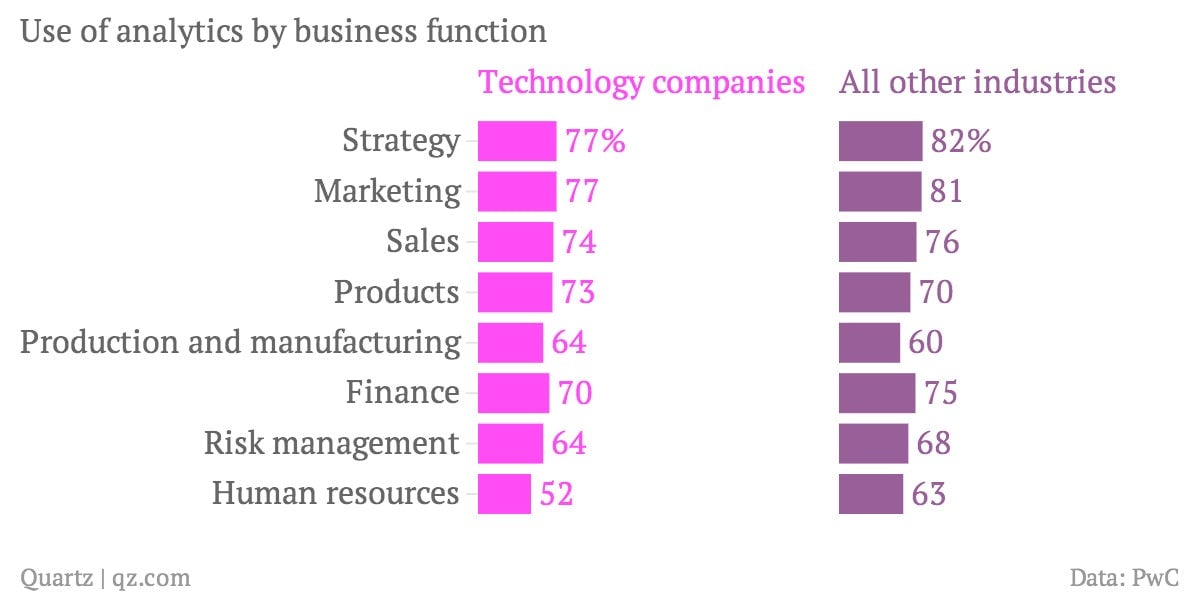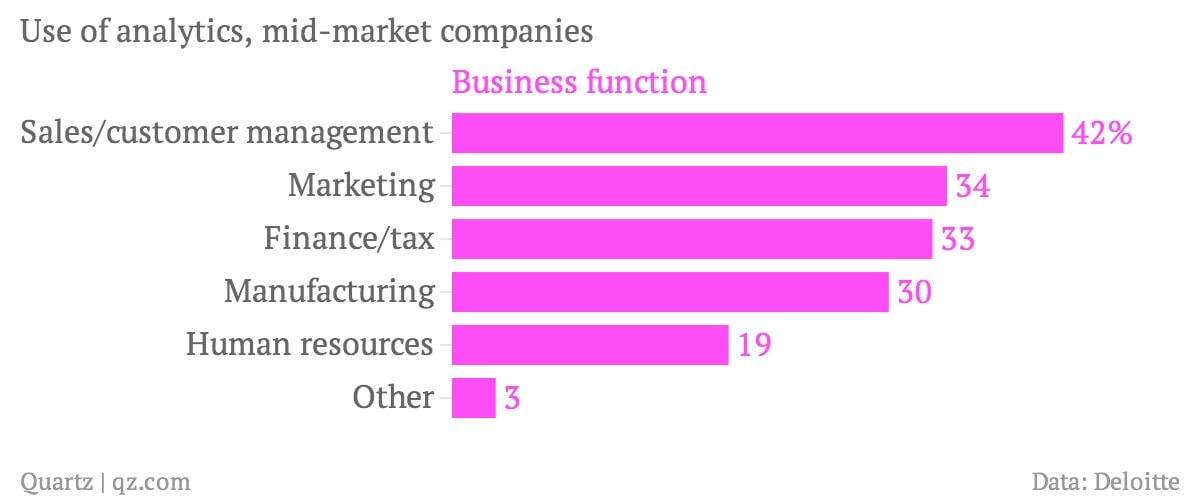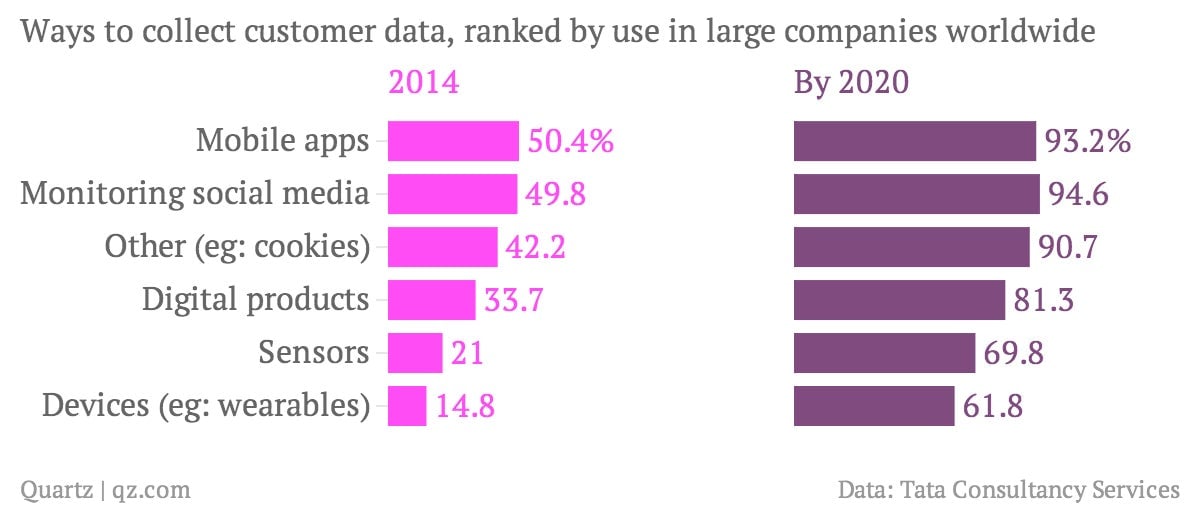Tech firms are actually using data and analytics less than other industries
Technology companies are known for their use of analytics. The most famous—or notorious—example was at Google, which once tested 41 shades of blue to decide what color to use on a toolbar. But tech companies are far from the only ones that interrogate data to make better-informed decisions. Indeed, according to a new report from PwC, a consultancy, traditional businesses use analytics slightly more often across business functions than tech firms.


Technology companies are known for their use of analytics. The most famous—or notorious—example was at Google, which once tested 41 shades of blue to decide what color to use on a toolbar. But tech companies are far from the only ones that interrogate data to make better-informed decisions. Indeed, according to a new report from PwC, a consultancy, traditional businesses use analytics slightly more often across business functions than tech firms.

PwC spoke to nearly 1,500 companies, include some 200 technology firms, for the study. It shouldn’t be surprising that non-tech firms are enthusiastically adopting analytics: “New digital ecosystems are emerging in various sub-sectors that are shifting the power and profits of established companies,” Tom Archer, who leads the consultancy’s tech practice in the US, tells Quartz. ”These disruptions will require companies in all industries to evaluate the manner in which they serve their customers.”
But, Archer suggests, rather than looking at just the number of companies are using analytics, it’s more useful to look at how the companies are using it. “While the technology companies’ responses were lower across several functional areas, they scored higher on product development and nearly on par in the sales area, both of which are critical areas to be able [to] sense and respond to customers’ desires in a more rapid fashion.” In other words, data and analytics are built into the very foundation of tech firms’ business, while other industries tend to use analytics as an add-on, to support the business.
Deloitte, another consultancy, has its own report out this month about the use of technology by mid-size American companies across industries. It too asked them about analytics use. Nearly two-thirds of companies in its sample use analytics, again mostly for secondary functions such as sales and marketing.

So what are all these companies analyzing exactly? They’re investigating internal data but they are also trying to get a look inside the heads of customers and potential customers. From Deloitte:
Not long ago, companies selling goods or services online could gain significant competitive edge by collecting customers’ names, locations, and basic demographic data. Today, firms need leading-edge capabilities to get consumers to click the “buy” button. Businesses want to know how much time users spend online, what they’re searching for, and what they’re likely to purchase.
A report out earlier this month from Tata Consultancy Services, yet another consultancy, explained how companies are collecting these data for sales and marketing purposes—mostly through mobile apps and social media.

With dramatic changes in established business practices and egged on by consultancies, all sorts of businesses are hoarding and analyzing data for a competitive edge. This practice is so widespread that even the chief information officer of one of the biggest data firms in the world, Acxiom, suggests that firms should exercise some restraint and strategic thinking in their data-gathering. “The historic approach has been: Go buy technology, go put data into it, then determine what reporting you want, and then figure out what your use case is,” he told Deloitte. “I would turn that around and say, ‘What is your case? What are you trying to solve?’ Start with the business requirements. Companies often skip over those simple questions.”
Without caution, companies end up with vast vaults stuffed with the most detailed data imaginable. Acxiom was one of the companies mentioned by name in a Federal Trade Commission report into data brokers and analytics firms. The kind of data they collect, listed here by Quartz, covers every imaginable aspect of an individual’s personality.